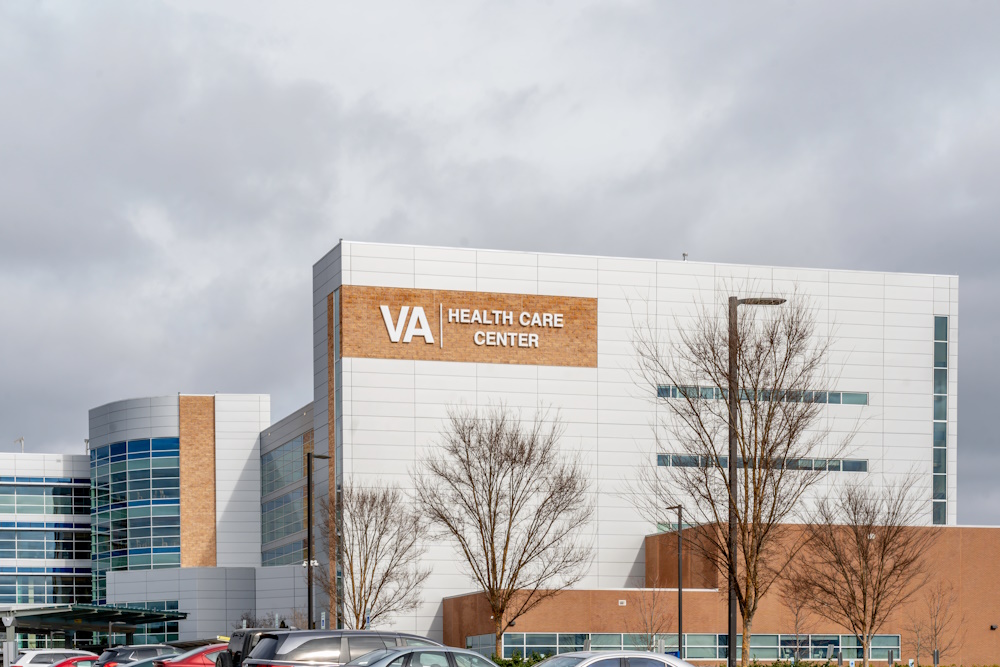This article explores a critical topic of discussion within the military and medical community: veterans health care. As a significant segment of our society, veterans deserve the highest level of care and understanding their health care options becomes pivotal in this effort. Accruing sufficient knowledge about this subject is key, not just for veterans, but for family members, policymakers, health care professionals, and the general public alike.
Understanding Veterans’ Healthcare and Eligibility
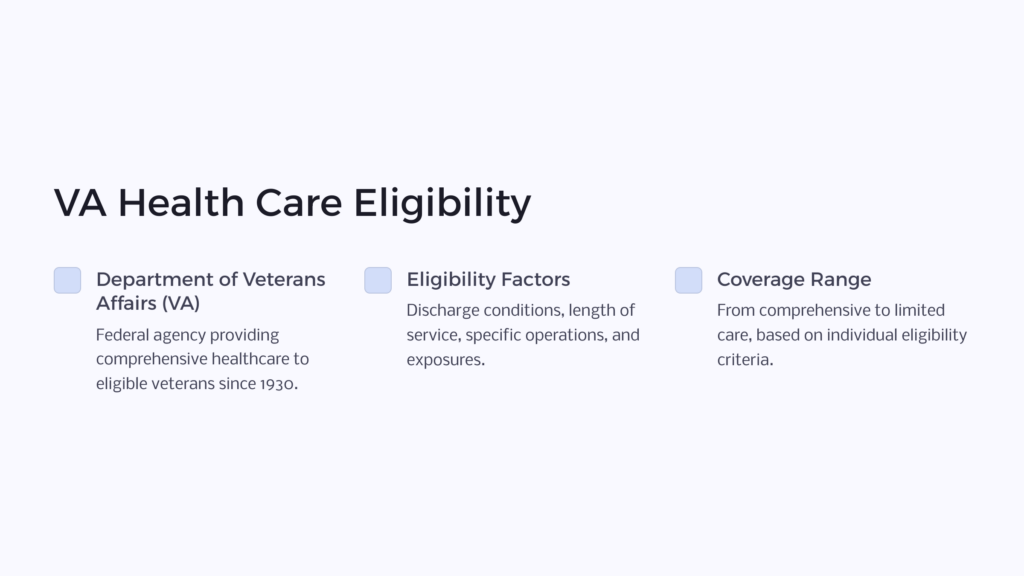
When it comes to VA health care, it’s essential to understand the role of the Department of Veterans Affairs (VA). The VA, established in 1930, is a federal agency that provides comprehensive healthcare services to eligible military veterans. These veterans health and medical care services encompass a broad spectrum of needs such as hospital care, outpatient care, pharmacy services, prosthetic services, and mental health care.
Veteran eligibility for such healthcare benefits hinges on several factors such as discharging conditions, length of service, and whether the veteran was part of specific operations or experienced certain exposures. The distinction in the healthcare coverage for active duty military members and veterans is stark. Active members receive full healthcare benefits as part of their service, whereas VA health benefits can range from comprehensive healthcare to limited care, based on their eligibility criteria.
Veterans and Emergencies: Can They Go To Any Hospital?
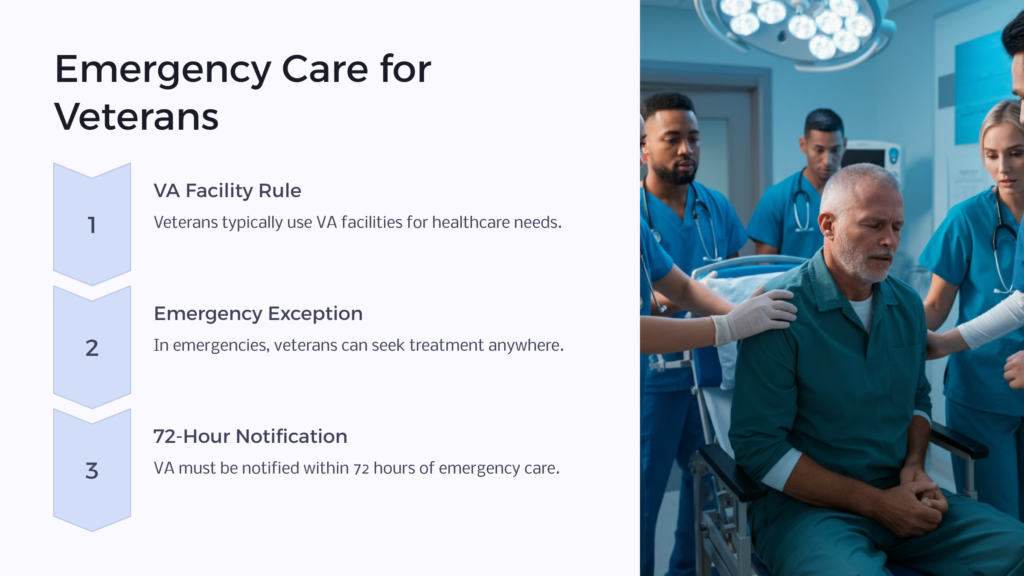
Emergencies often raise questions about where veterans can seek immediate care. The general VA medical care rule necessitates veterans to use a VA facility for their healthcare needs. However, in an emergency, veterans can seek treatment anywhere. However, it’s crucial to understand the regulations surrounding these scenarios to ensure the proper coverage of medical expenditures.
During an emergency, a complex system swings into action. VA emergency care considers situations where delays could lead to life impairment as emergencies. Hence, veterans can go to any emergency room or hospital, but they must involve the VA within 72 hours of receiving emergency care. Failing to do so could result in denial of coverage or limit the VA health care benefits available to the veteran.
The Veterans Community Care Program
The Veterans Community Care Program is a pivotal element of the VA healthcare system. It is designed to simplify veterans’ access to healthcare services in their community. When VA healthcare facilities are unavailable or cannot provide the needed service, veterans can use a non-VA hospital, ensuring continuity of care. The VA determines eligibility for this program based on factors such as geographical inconvenience, the nature of services required, and available VA services.
The Importance of Prior Approval in Non-VA Emergency Cases
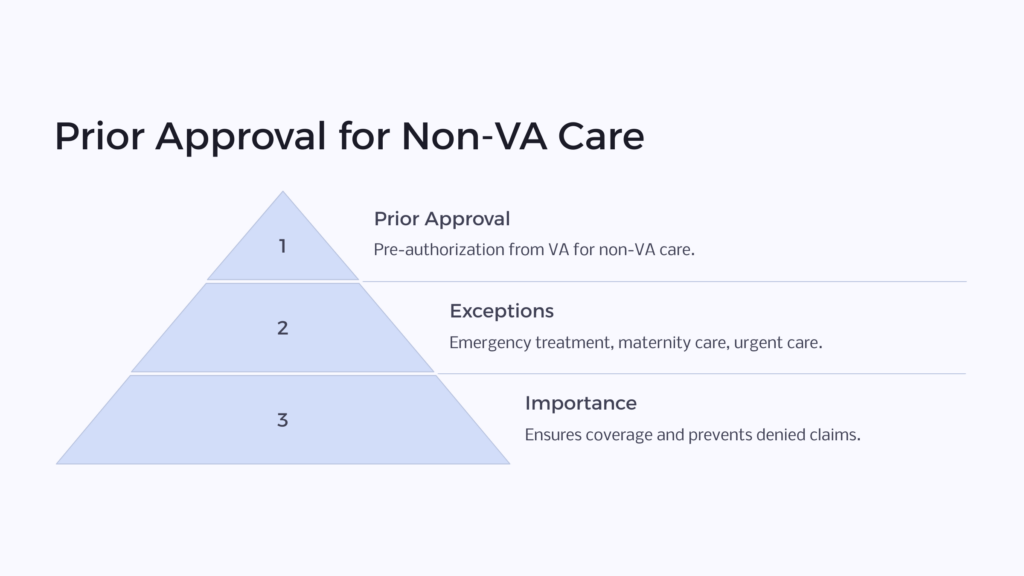
Prior approval is a crucial aspect of receiving non-VA care covered by Veterans Affairs. Essentially, this means receiving pre-authorization from the VA before seeking healthcare services outside the VA network. Neglecting to secure prior approval when required can lead to denied coverage, leaving veterans with substantial medical bills.
However, some exceptions where prior approval is not needed include emergency treatment, maternity care, urgent care, and certain clinical procedures and services covered under the MISSION Act or VA’s contracted networks. It is always recommended to consult with the VA before seeking non-VA care for prior approval in order to continue receiving VA health care benefits.
Financial Implications for Veterans in Non-VA Hospitals
Financially, veterans may face varying costs when using non-VA hospitals. Typically, the VA covers a majority of medical expenses. However, circumstances such as not meeting eligibility conditions or failure to pre-notify the VA about non-VA hospitalization can lead to out-of-pocket expenses.
By fully comprehending their VA benefits, ensuring timely communication with the VA, and seeking prior approval when necessary, veterans can largely avoid unexpected medical costs.
Not All Emergencies Are Created Equal
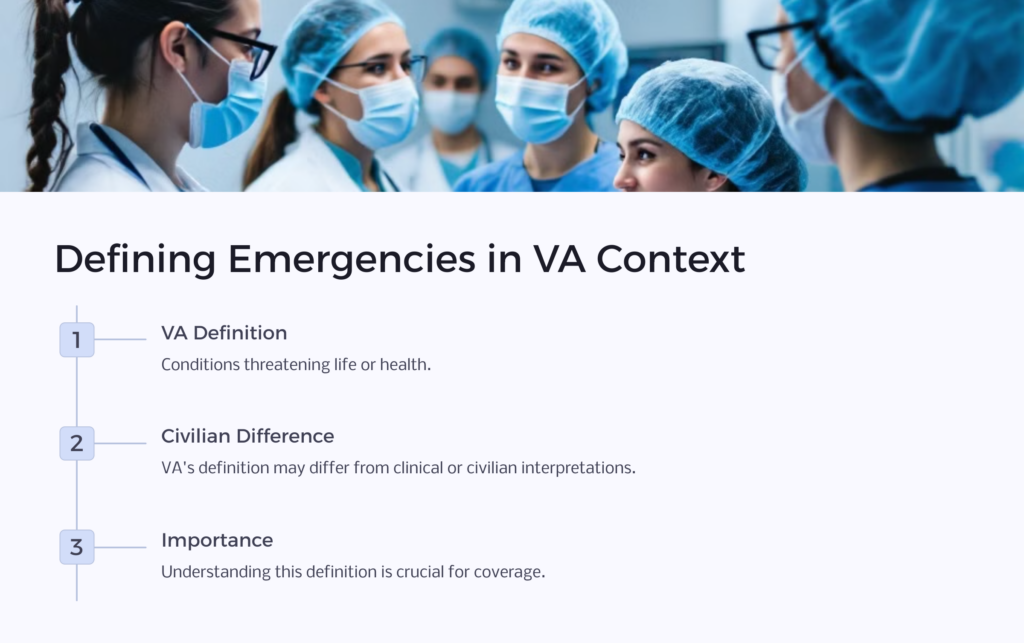
VA’s definition of ’emergency’ may differ from clinical or civilian interpretations. Emergency, by the VA’s standards, primarily relates to conditions that could threaten life or health. As such, not all situations that may appear crucial might be recognized as emergencies from an insurance coverage standpoint.
Hence, understanding what counts as an emergency is vital for veterans. For this, they can refer to the VA handbook or set up consultations with VA representatives.
Useful Tips for Veterans Seeking Medical Care in Emergencies
In emergencies, veterans should ideally report to the nearest VA hospital. If that’s not feasible, they should communicate with medical providers about their VA benefits and ensure that the VA is notified within 72 hours of treatment. After receiving emergency care, veterans should follow up with their primary VA care team as soon as possible.
The landscape of veterans’ healthcare, while complex, is integral to ensuring our veterans’ health and well-being. Understanding the VA, the Community Care Program, the importance of prior approval, and financial implications can radically improve veterans’ navigation through their healthcare journey.
Inherent challenges persist, and each veteran’s situation is unique; however, with further guidance from the VA and a deeper understanding of their healthcare benefits, veterans can confidently approach their healthcare needs. The goal will always remain to extend the best possible healthcare services to those who have served our country bravely, honoring their service with the respect it deserves.
 Benefits.com Advisors
Benefits.com Advisors
With expertise spanning local, state, and federal benefit programs, our team is dedicated to guiding individuals towards the perfect program tailored to their unique circumstances.
Rise to the top with Peak Benefits!
Join our Peak Benefits Newsletter for the latest news, resources, and offers on all things government benefits.















